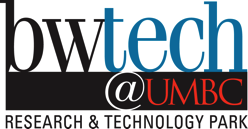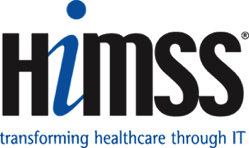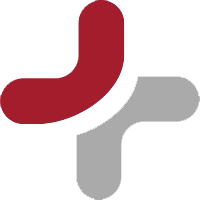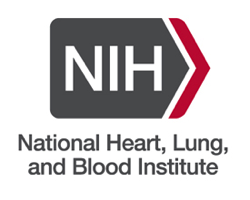
New Enterprise Associates has closed more than $3.1 billion in new capital for its 15th fund and a joint "opportunity fund," the Chevy Chase venture capital giant said Wednesday.
The raise marks the fourth consecutive $2.5 billion-plus fund and brings the total capital under the firm's umbrella since its 1977 inception to nearly $17 billion.

Venture firm New Enterprise Associates made some massive waves today on news that it’s closed its fifteenth – and largest – fund, which holds $3.1 billion. And a huge swath of that – 30 to 40 percent, according to Fierce - could likely be allocated to the healthcare space.
MedCity News reported initially on NEA’s plans to raise funds – it filed a document with the SEC in January indicating a $2.5 billion fundraise:

AstraZeneca today announced that MedImmune, its global biologics research and development arm, has entered into a collaboration to conduct clinical trials in immuno-oncology with Immunocore Limited, a privately-held UK-based biotechnology company.
Under the terms of the agreement, Immunocore will conduct a Phase Ib/II clinical trial combining MedImmune’s investigational checkpoint inhibitors MEDI4736 (anti-PD-L1) and/or tremelimumab (anti-CTLA-4) with IMCgp100, Immunocore’s lead T-cell receptor-based investigational therapeutic, for the potential treatment of patients with metastatic melanoma. MedImmune has an exclusive relationship with Immunocore for the development of IMCgp100 in combination with MEDI4736 and/or tremelimumab, and will have first right of negotiation for the future commercial development of these combinations for tumours expressing glycoprotein 100 (gp100), a tumour-associated antigen.

The field of blood study and blood-related product development is a small one, and the field of autotransfusion (blood recycling) is even smaller. It often seems like everyone knows everyone else. We've had a lot of great mentors in the blood space from afar, but it hasn't been until we tapped into the inner workings of the Baltimore/DC area that we realized quite how small.
Just six weeks ago, we moved to the Charm City for the DreamIt Health Accelerator program from our medical device manufacturing home in Grand Rapids, Michigan. We were looking for other resources and mentors in both the blood transfusion and global health community to take our company to the next level, and we've found them.

Northrop Grumman Corporation (NYSE:NOC) and the bwtech@UMBC Cyber Incubator announced today that continuous monitoring solutions provider DB Networks® will be the fifth cyber startup to graduate from the highly successful Cync Program. A ceremony marking the occasion is scheduled for next week during the RSA Conference 2015 in San Francisco, California.
OptioLabs of Baltimore joins Cync this month as the newest cyber startup accepted into the program since it began in 2011.

The Institute for Genome Sciences (IGS), created in 2007, is an inter-disciplinary, multi-departmental team of collaborative investigators within the University of Maryland School of Medicine led by Claire M. Fraser, Ph.D., one of the world’s preeminent genome scientists.
IGS uses large-scale, cutting-edge experimental and computational tools to better understand gene and genome function in health and disease, to study molecular and cellular networks in a variety of model systems, and to generate data and resources of value to the international scientific community.

Washington companies raised more venture capital funding in the first quarter than they have during the first three months of any year in more than a decade, building on momentum the industry mustered up late last year.
During the first quarter, 38 Washington companies hauled in roughly $329.9 million from venture capitalists, a 55 percent increase over the $212.5 million raised by firms in the region during the same period last year, according to the latest round of data from PricewaterhouseCoopers and the National Venture Capital Association. While that’s down slightly from a surge last quarter, in which investors poured $363.5 million into local companies, it’s well above last year’s sluggish quarterly average ($270.4 million) and the largest first-quarter haul since 2001.

The news broke just after midnight Thursday that D.C. tech accelerator 1776 would acquire Disruption Corp. — both its Crystal Tech Fund, which currently includes 12 portfolio companies, and the startup-focused, data-crunching software that formed the foundation of Paul Singh's Crystal City enterprise.
It can't be denied that 1776 has built a rather explosive brand since it first popped on the scene in 2013. President Barack Obama and United Kingdom Prime Minister David Cameron have toured the premises. Partnerships have been forged with several monster corporations (like Comcast and Microsoft) and, as of this week, two local municipalities (Montgomery and Arlington). Legions of startups work out of the District offices. And Virginia Gov. Terry McAuliffe will be speaking at Thursday's formal announcement of the deal.

Baltimore may not have the startup mecca reputation of Silicon Valley or Boston, but it is one of the fastest growing tech talent markets.
The city’s tech talent pool grew by 42 percent between 2010 and 2013, making Baltimore one of the fastest growing tech talent markets in the country, according to a new report by CBRE, a commercial real estate brokerage. Only San Francisco and the San Francisco Peninsula reported a faster growth rate than Baltimore. Tech talent grew 44 percent in those areas.

Roche aims to have an immunotherapy cancer drug in 11 late-stage trials by the end of the year, the Swiss drugmaker's head of medical affairs for oncology, Nico Andre, said at a conference on Monday.
The Basel-based company's MPDL3280A, which is being tested in melanoma, as well as lung, bladder, kidney, bowel and blood cancers but has not yet been approved to treat any type of cancer, is the furthest developed of this class of drug. Some analysts have said such drugs could generate more than $30 billion in annual sales for the industry as a whole by 2025.

Alexandria Real Estate Equities Inc. made its first modest investment in Kendall Square about 14 years ago, developing a blocky five-story building it named The Science Hotel.
The building, on Memorial Drive, was designed to be an incubator for biotechnology startups as the industry was just emerging in East Cambridge. In the following years, biotech grew explosively in the Kendall Square area, and Alexandria grew, too.

In the face of growing criticism and impatience with the Meaningful Use EHR incentive program, National Health IT Coordinator Dr. Karen DeSalvo remains upbeat but aware of the tough work ahead to achieve the vision of a learning health system underpinned by a network of interoperable EHRs.
“Interoperability is a priority, but it is still just a means to an end,” De Salvo said Thursday morning in a keynote session on the last day of HIMSS15 at McCormick Place in Chicago. Without interoperability, it will be difficult to achieve healthcare payment and delivery reform, she added.

The tech incubator 1776 is a collegial place, with offices painted in lively colors, couches to greet visitors, and members who share seats, desks and the fixings for peanut butter and jelly sandwiches.
It’s an atmosphere carefully cultivated by its founders, Evan Burfield and Donna Harris, and it helped position the outfit as a caretaker, connector and capital provider for tomorrow’s big technology companies.

Blood draws typically require trained professionals to perform and can be both frightening and painful to patients. Tasso, Inc., a spinoff of the Unviersity of Wisconsin-Madison, has developed a device that can be applied by the patients themselves to nearly painlessly draw blood.
The device works thanks to capillary action, slowly pulling in blood through a tiny channel over a two minute period. Once the process is complete, the patient simply takes the device to a clinical lab for testing. Since current methods require refrigeration of blood samples during shipment, DARPA is giving Tasso $3 million to work with other firms to develop a way to extend to a week the time the blood samples can be safely stored at up to 140° F (60° C).

MAY 12, 2015, 2-3 pm ET
The landscape of potential customers for biomedical products can be complicated, with patients, providers and payers assigning different values to new technologies. Companies must navigate this landscape to find the individuals who will actually make the decision to purchase their products. In this webinar, entrepreneur and educator Rana Gupta will talk about how customers can not only help biomedical innovators to define the value proposition for their products, but can also guide and fund their product development work.